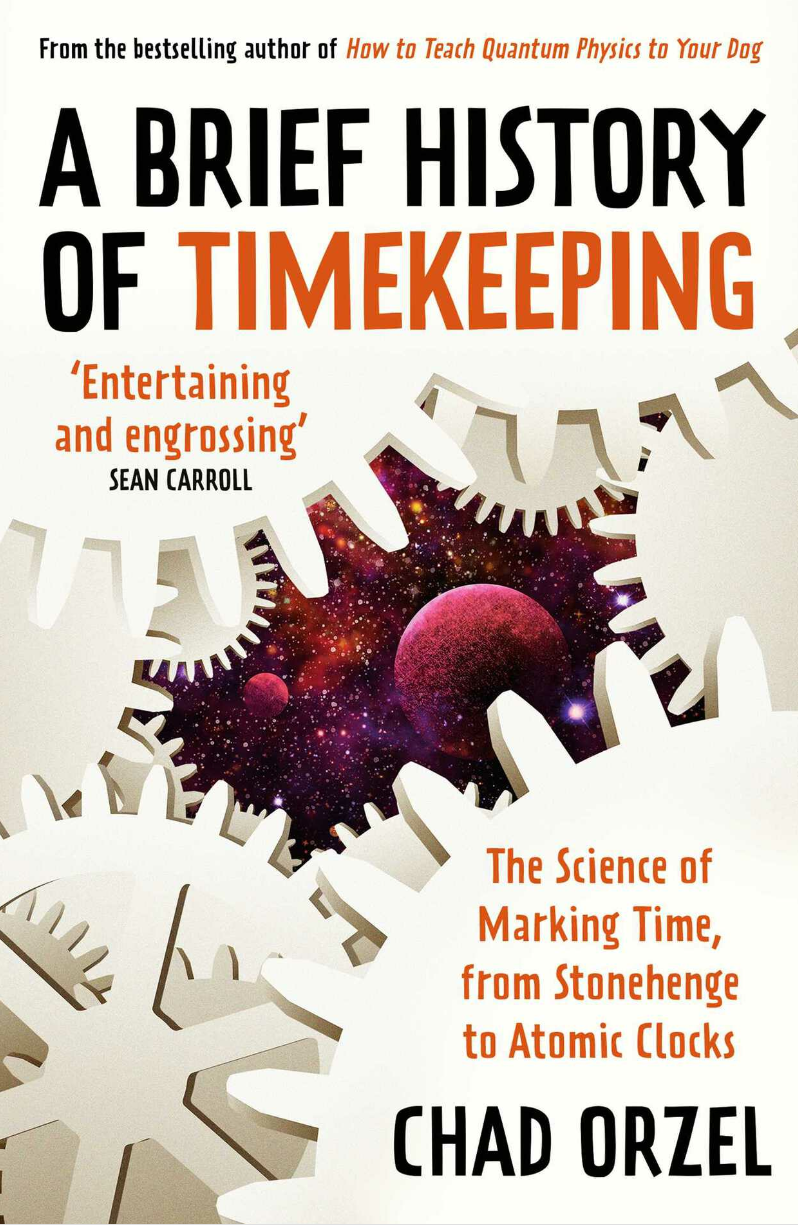
Brief History of Timekeeping: The Science of Marking Time, from Stonehenge to Atomic Clocks by Chad Orzel
I love the pun in the title.
I have a bit of mixed feelings about this book. I find the topic fascinating, but maybe that is also why there wasn’t very much information in the book, especially regarding the later period. Although, mostly I’ve encountered the topic as Greek/Arab astronomers –> Calendar wars –> Harrison!, so it was nice to see the arrows fleshed out a bit. The book follows an obvious logical structure, moving from the deep history of not very accurate “clocks” to progressively higher precision modern timekeepers, ending up with today’s and tomorrow’s hyper-accurate frequency combs. Each step in the progression is explained both in what innovations enabled this development and what necessitated it. Like how the long history of tracking the equinoxes allowed astronomers to see them slide slowly across the calendar and to figure out what corrections were needed to amend it and keep the months in good behaviour.
It’s all very well worth reading and I would urge everyone not to skip the marked out “harder” sections. They are perfectly well understandable and Orzel uses a minimum a jargon, making it very accessible also for those who have no science background. (Sometimes I feel these “expert bits” in books are there only to make the readers feel good about themselves: “Hey, I understand the hard sections!”) Although, even reading through the chapter twice, I still have no idea how the Maya calendar works!
My favourite bits of the book though, are the little humorous gems spread out through the text and in the footnotes: “Mostly bad omens: ‘Woe to the moon,’ ‘Woe to man,’ and ‘Woe to the maize god’ […] The Maya do not seem to have been a cheerful people.” and “That difference is readily measurable […] at least if you’re a monk with limited entertainment options.”